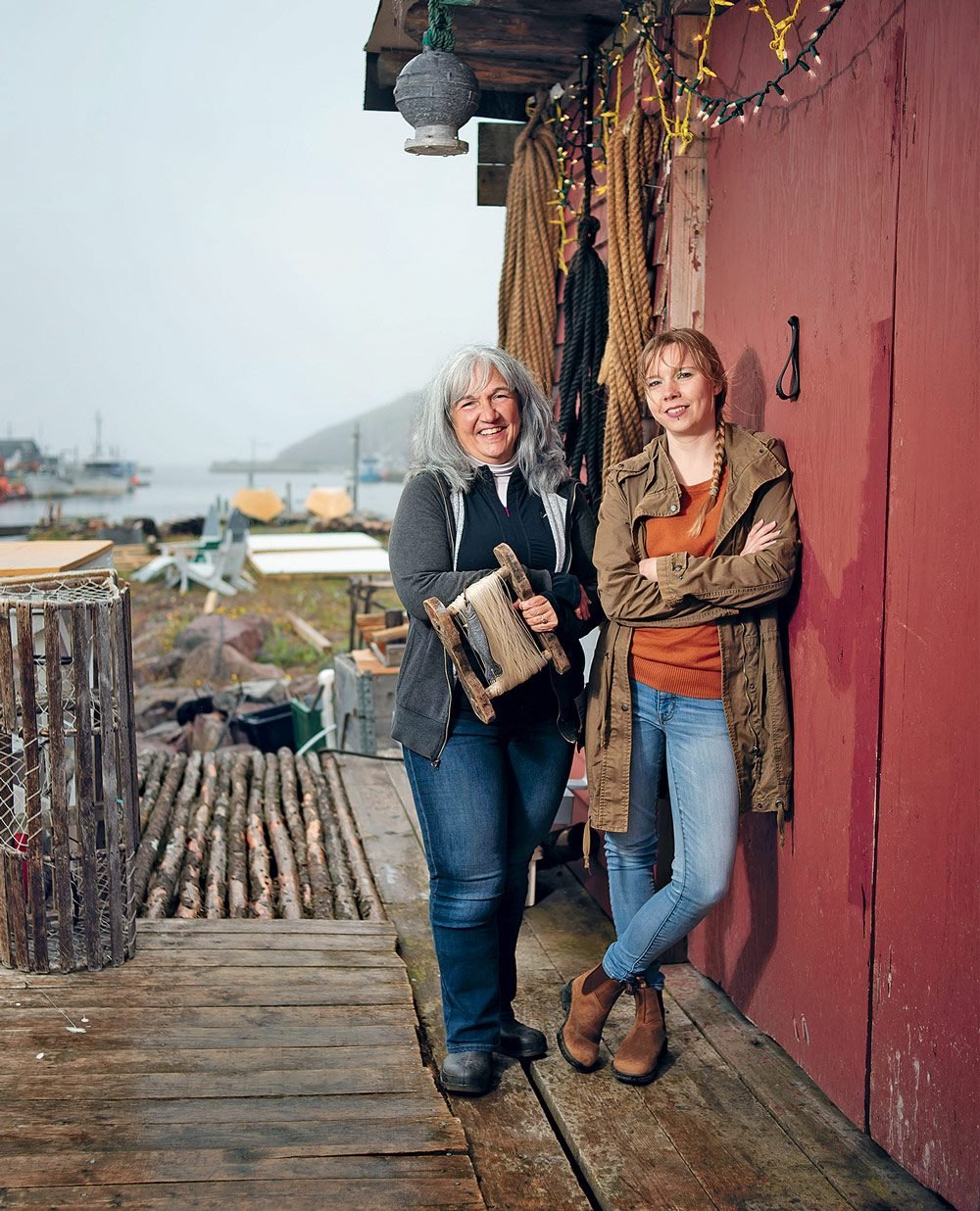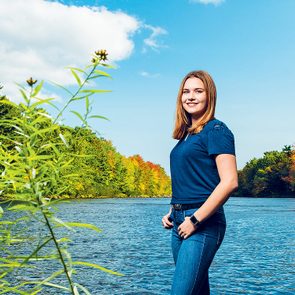How One Woman in Petty Harbour is Bringing Newfoundlanders Back to Their Fishing Roots
With Fishing For Success in Petty Harbour, Newfoundlander Kimberley Orren hopes to bring women, children and a sense of community back to the wharf.

Fishing lessons from Petty Harbour
Fishing is part of my identity,” says Jasmine Paul, a 31-year-old part-time university student. “And when I wasn’t fishing, I was depressed.” On a Sunday in July, eight women are huddled together inside a wooden fishing shed in Petty Harbour, N.L., about a 15-minute drive south of St. John’s. As many as 20 girls and women spanning the ages 4 to 60 come out for the biweekly Girls Who Fish program, but today’s rain and fog has hampered the turnout.
“You weren’t being your true self,” Kimberly Orren replies. Orren, 54, along with her husband, Leo Hearn, founded Fishing for Success in Petty Harbour in 2014, a non-profit that celebrates and teaches the traditional fishing knowledge and skills that were once the mainstay of outport Newfoundland and Labrador. Since 2016, this has included a safe space for girls and women to talk about an industry that is male-dominated, and learn some practical skills needed to change that—all while catching a few cod.
Paul, who comes from a family of Newfoundland fishers, helped her parents with crabbing for a season in her early twenties, but decided to pursue academic studies. Ten years later, she realized she missed working outdoors with people she loves, and came back to it. She now aspires to one day skipper her own boat.
The idea for Fishing for Success came when Orren decided that she wanted to teach kids to fish. Raised in Newfoundland, she had moved to Florida as a teenager with her family in 1977. On her visits home to Petty Harbour, she witnessed the ongoing effect of fishery closures, as many people left their coastal homes.
“The community wharf wasn’t a community wharf anymore,” says Orren. She missed the days when kids waited dockside to earn a few bucks cutting cod tongues from discarded fish heads and selling them in town.
But Orren’s newfound purpose wasn’t only sentimental. Although there are fewer jobs in the fishery than there were during her childhood, the industry today hauls in more money than it has in generations, and for those who value the lifestyle, a career as a fisher is still a viable option.
To launch Fishing for Success, Orren traded one classroom for another, leaving a career as a high school science teacher in 2006 to head back to school herself—for graduate studies in fisheries and aquatic sciences, as well as a fishing industry diploma. Eight years later, her organization has passed on fishing knowledge and skills to thousands of kids, and also runs a program for families to learn together.
“Fishing for Success is drawing on sustainable fishing practices that date back 500 years,” says Dean Bavington, a professor of geography at Memorial University of Newfoundland, referring to techniques like handlining, where fishers use a line but no rod, pulling a bait of capelin up and down to attract cod. He adds that Orren’s organization goes one step further in reviving this heritage by bringing in individuals like Paul, who were historically excluded.
Back in the shed, the women talk at length about what fishing brings them. More than money from commercial trade or a recreational trophy, the vocation offers them sustenance and a connection to their birthplace. “We don’t have nans, pops, uncles and aunts who fish anymore,” Orren says. “We’ve got kids who live in Newfoundland who have never been on the water, never been in a boat.”
“Girls Who Fish reminds me I belong and have just as much right to discuss the issues in the fishery as anyone,” adds Paul. “It helps build my confidence and keeps me motivated to keep doing what I’m doing.”
Next, read about the bearded Newfoundland men who posed as mermaids—for a good cause!






